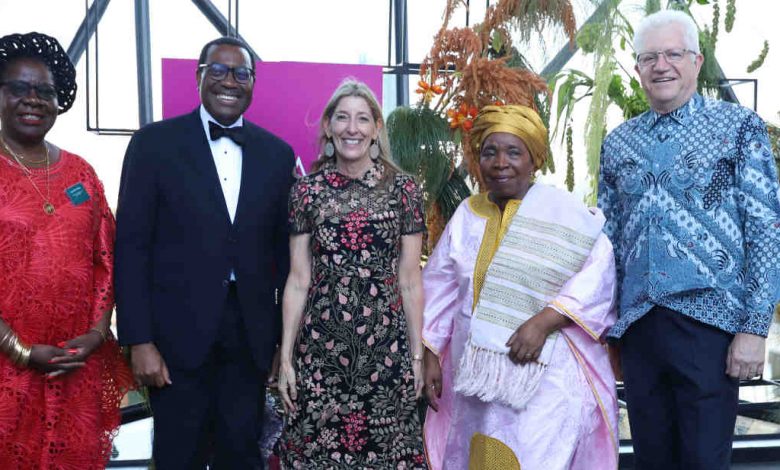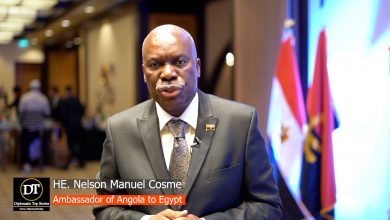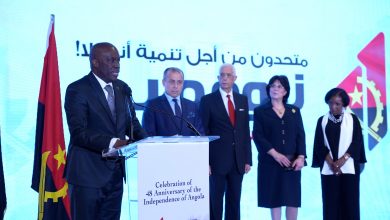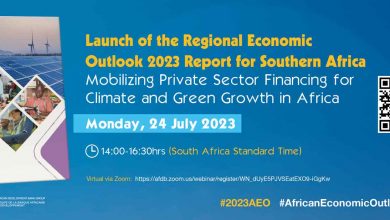“Let’s act to transform Africa’s cities” – African Development Bank President to African Mayors | African Development Bank

Diplomat.Today
The African Development Bank
2023-01-24 00:00:00
——————————————-
By 2050, the number of people living in African cities is expected to double from about 600 million to 1.2 billion, representing the fastest rate of urbanization in the world. This poses significant development challenges, requiring innovative African-led solutions.
In rousing remarks to the mayors of 15 African cities gathered for the inaugural forum of the African Mayors Leadership Initiative (AMALI), Dr. Akinwumi A. Adesina, president of the African Development Bank Group, gave highlights of how city leaders – supported by national governments – can rapidly and sustainably transform urban development across the continent.
AMALI is a collaboration between the University of Cape Town’s African Center for Cities (ACC) and Big Win Philanthropy.
According to Dr. Adesina: “There is a need for more autonomy and fiscal responsibility for cities and municipalities and for national governments to enable them to raise funding to meet the huge development needs. Rather than simply relying more on transfers from national governments, cities and towns should build their institutional capacity to raise their own funding.”
Dr. Adesina pointed out the critical role initiatives like AMALI can play in sharing best practices between cities and helping leaders overcome the challenges posed by urbanization. He also highlighted the African Development Bank’s commitment to working with city leaders to transform their cities, noting that the bank’s board approves an average of more than $2 billion a year for projects and programs that have a direct positive impact on urban areas across Africa.
The Bank’s support includes the establishment of an Urban and Municipal Development Fund to provide technical assistance and capacity building for integrated urban planning, governance, project preparation and wider urban management, including municipal fiscal management. The fund provides support in more than 15 cities to help improve the lives of millions of city residents.
In a clear call to action to African city leaders, Dr Adesina said:“The Africa we want must be one where our cities are well planned to become drivers of greater economic growth and prosperity for Africa. This cannot just happen. The future is not created by a roll of the dice. So let’s act to transform Africa’s cities,” said Dr. Adesina.
At the event, Dr Nkosazana Dlamini-Zuma, South Africa’s Minister of Cooperative Governance and Traditional Affairs, urged African city leaders to always put people first. To reduce urban migration, she urged African countries to invest in rural areas and small towns. The minister also encouraged African countries to prioritize the skills revolution, citing the skills gap across the African continent as a barrier to development.
Alan Winde, Premier of the Western Cape, spoke at the event about strategic ways regional and national governments can support mayors in transforming their cities, with an impact that extends far beyond city limits.
“I believe in decentralization. I believe it empowers local authorities where possible to dream big, have visions and move forward into the future,” he said. According to Prime Minister Winde, decentralization “let’s empower and empower, at the national and provincial levels, local authorities and cities, because they are cities that will grow out of proportion for the next 50 and 100 years.”
The event also included comments from Prof. Edgar Pieterse, Founding Director of the African Center for Cities and Co-Chair of AMALI, Prof. Mamokgethi Phakeng, Vice-Chancellor of the University of Cape Town, and Jamie Cooper, Founder and President of Big Win Philanthropy and co-chair of AMALI.
Notes to the editor
Photo and video
A recording of Dr. Adesina’s comments and a selection of photos can be found here. All photos and video footage must be credited to the “African Mayoral Leadership Initiative (AMALI)”.
About AMALI
The African Mayoral Leadership Initiative (AMALI) seeks to catalyze the transformation of cities in Africa by providing tailored support to city leaders through two key platforms. Tea AMALI City Leadership Program offers a year-long program that supports mayors in sharpening the visions for their cities. Participating mayors will gain clarity on the teams and tools needed to successfully implement their plans and gain support from their constituents and key stakeholders. Tea AMALI Urban Governance Research Laboratory provides mayors and other policymakers with the research support and data analysis they need to transform African cities.
Website: www.amalicities.africa
Twitter: www.twitter.com/AMALI_Cities
LinkedIn: www.linkedin.com/company/amali-cities
About Big Win Philanthropy
www.bigwin.org
Big Win Philanthropy has deep experience developing leadership programs co-developed by the Harvard Ministerial Leadership Program held at Harvard University and the Amujae Initiative hosted by the Ellen Johnson Sirleaf Presidential Center for Women and Development. Big Win also provides direct support to heads of state and public leaders across Africa pursuing transformational change.
About African Center for Cities
www.africancentreforces.net
The African Center for Cities (ACC) is an interdisciplinary hub at the University of Cape Town with a mandate to conduct meaningful research into understanding, reframing and addressing pressing urban crises. ACC is globally recognized as a leading urban research institution in Africa with a decade-long track record of promoting a southern perspective on the future of cities.
About the African Development Bank Group
www.afdb.org
The African Development Bank Group (AfDB) is the leading development finance institution in Africa. It consists of three different entities: the African Development Bank (AfDB), the African Development Fund (ADF) and the Nigeria Trust Fund (NTF). On the ground in 44 African countries with an external office in Japan, the AfDB contributes to the economic development and social progress of its 54 regional member states.
——————————————-



